On the heels of my enthusiastic post about the Ellen Raskin reissues, I want to put in a bid for two semi-lost gems that I—as a bookseller, not just as a reader—would like to see back in print. I say semi-lost, because they aren’t actually out of print; they’re simply unavailable in my favorite editions.
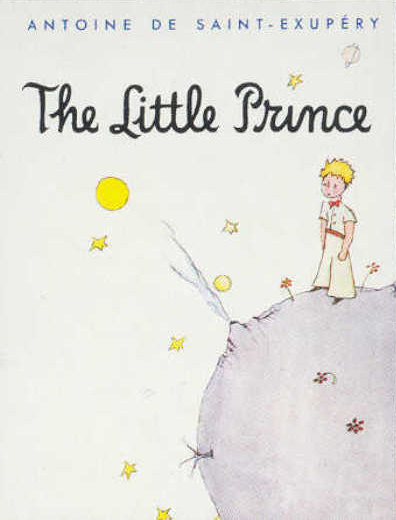 One is the 1943 Katherine Woods translation of The Little Prince, the one that mesmerized me as a child. I know the 2000 Richard Howard translation is considered to be more accurate, and I’m perfectly happy for that edition to co-exist with the one I grew up and fell in love with; I just want to be able to offer the earlier translation to customers, too. Its poetry and rhythms are lovely. I knew lines and even pages by heart, and I read the passage about the taming of the fox at my mom’s memorial service. I used to make my college boyfriends read it. It’s a little like the difference between the King James version of the Bible and the newer editions. I like the old-fashioned quality of Woods’s language; it flavors the story and suits the quaint formality of the little prince himself.
One is the 1943 Katherine Woods translation of The Little Prince, the one that mesmerized me as a child. I know the 2000 Richard Howard translation is considered to be more accurate, and I’m perfectly happy for that edition to co-exist with the one I grew up and fell in love with; I just want to be able to offer the earlier translation to customers, too. Its poetry and rhythms are lovely. I knew lines and even pages by heart, and I read the passage about the taming of the fox at my mom’s memorial service. I used to make my college boyfriends read it. It’s a little like the difference between the King James version of the Bible and the newer editions. I like the old-fashioned quality of Woods’s language; it flavors the story and suits the quaint formality of the little prince himself.
I had a customer in the store this week who bought and returned the newer version because she “hated” this translation. As unfair as these complaints are to lob at a translator merely trying to provide a more direct translation of the original, I think there’s something to be said for allowing readers to choose their own preferred translation by offering both. It’s not rational, our attachment to the words that shape us; it’s visceral. The nostalgia factor cannot be overestimated when it comes to selling children’s books. People want the editions that were touchstones for them—and they usually want those editions in hardcover.
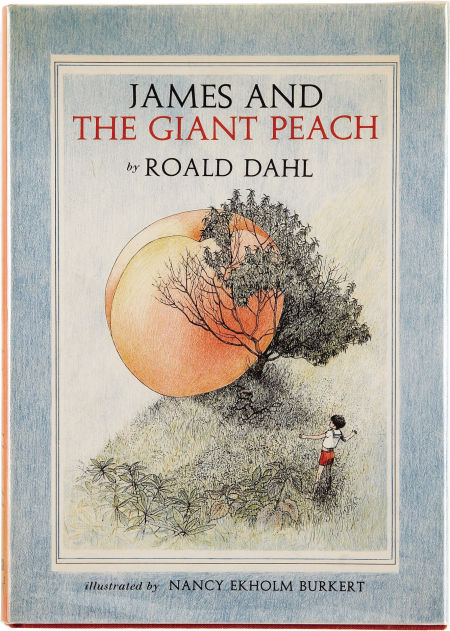 My other request is a fervent appeal to reissue the Nancy Eckholm Burkert version of Roald Dahl’s James and the Giant Peach. The story is still available illustrated by Quentin Blake (whose art in general I adore, and whose Edward Eager cover redesigns dramatically revitalized sales of those books, at least at our store), but I think something was lost when the Burkert version went out of print. Quentin Blake is a master of whimsy; Burkert’s art combined whimsy with gravity, like the story itself. Her softly glowing, magical, striking illustrations haunted my imagination as a child, resonating at a very deep level.
My other request is a fervent appeal to reissue the Nancy Eckholm Burkert version of Roald Dahl’s James and the Giant Peach. The story is still available illustrated by Quentin Blake (whose art in general I adore, and whose Edward Eager cover redesigns dramatically revitalized sales of those books, at least at our store), but I think something was lost when the Burkert version went out of print. Quentin Blake is a master of whimsy; Burkert’s art combined whimsy with gravity, like the story itself. Her softly glowing, magical, striking illustrations haunted my imagination as a child, resonating at a very deep level.
What I wish for is not to replace the Blake edition (and I see that a new graphic novel with art by Jordan Crane is coming in March) but to reinstate the Burkert hardcover as well — matte dust jacket and all. We can keep the Blake for the paperback, fine by me. Just give us the choice of hardcovers, and let us introduce a new generation of kids to the strange and wonderful peach-y art in that original edition.
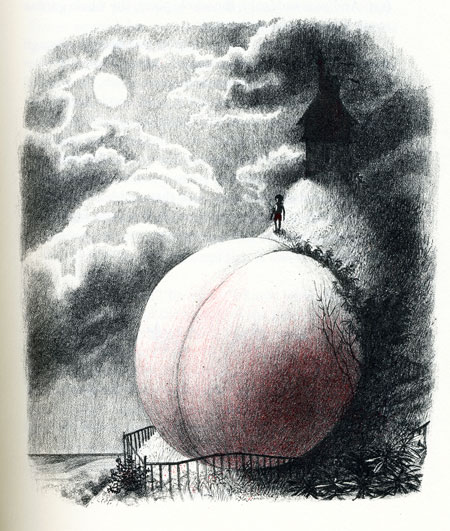 If there’s anything a children’s bookseller knows, it’s that people are passionate and proprietary about specific editions of their favorite books. I’d say that in our field, nostalgia drives 25%-30% of picture book and middle grade sales. (Imagine, for a moment, trying to sell Mike Mulligan and the Steam Shovel—a book that softens the expression of even the grumpiest grandpa—if it had different illustrations. Sales would screech to a halt.) So, publishers, how about it? Bring back these delicious editions we love and can handsell like nobody’s business to the parents and grandparents who come in looking for them.
If there’s anything a children’s bookseller knows, it’s that people are passionate and proprietary about specific editions of their favorite books. I’d say that in our field, nostalgia drives 25%-30% of picture book and middle grade sales. (Imagine, for a moment, trying to sell Mike Mulligan and the Steam Shovel—a book that softens the expression of even the grumpiest grandpa—if it had different illustrations. Sales would screech to a halt.) So, publishers, how about it? Bring back these delicious editions we love and can handsell like nobody’s business to the parents and grandparents who come in looking for them.
Readers, are there any older editions of in-print books you’d like to see again?
Monthly Archives: February 2011
So You Want to Publish a Book
Josie Leavitt - February 25, 2011
I received an email the other day from an earnest author wanting me to look at her manuscript for possible publication. This post is a letter for all of you out there who want to be writers. Please follow these few steps and you’ll find your relationship with your local bookstore much more productive.
– Use your bookstore as a resource. Go to as many author events as you can. They’re free and they provide a wonderful chance to meet and speak with successful authors and find out their path to getting published.
– Do not take advantage of the staff. They are there to sell books, not to research which publisher is most likely to be receptive to your picture book about a dragon who drives a tractor. That kind of research is your job as a writer. It’s important to know which publisher is the most likely to be receptive to your manuscript, and the only way to know that is to read, read, read as much as you can. You can get books from the bookstore or the library, it doesn’t matter, just keep reading.
– Use the Internet to your advantage. While we may order books, we often don’t know who the editors are, and this info is out there on the Internet if you go to the publisher’s web site. You can learn so much by researching authors, editors and agents on the web, and that can be invaluable to a writer’s career.
– Do not bring your manuscript to the bookstore to see if someone there will read and critique it. We are booksellers, not editors. I don’t bring my home remodeling sketch to the guy at the hardware store for review, because that’s not what he does. Do not have hurt feelings about this, it’s just the way it is. Asking your local bookseller to review your manuscript puts her in a very awkward situation. If the manuscript isn’t good, and the bookseller is honest, they risk hurting your feelings and jeopardizing your relationship with the bookstore. If it is good, all the bookseller can do is tell you it’s good and then the rest is up to you.
– Join the Society of Children’s Book Writers and Illustrators immediately. This is one of the best resources for new writers. They have workshops on how to submit to a manuscript, sessions with editors, and regional chapters that are wonderful for networking.
– Keep writing and when your book gets published let your local store know, because they’d love to have a book launch party for you.
New Marketing for Out-of-Print Treasures
Elizabeth Bluemle - February 24, 2011
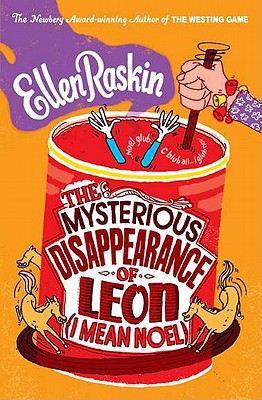
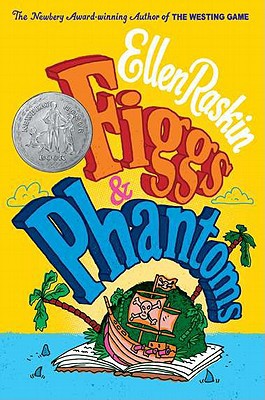 This time of year, when we’re taking sales meeting after sales meeting with reps, I find myself looking through catalogs to see if any of my old favorites have come back into print. And the fantastic thing is, they often do.
This time of year, when we’re taking sales meeting after sales meeting with reps, I find myself looking through catalogs to see if any of my old favorites have come back into print. And the fantastic thing is, they often do.
Editors are passionate book lovers, and as they grow in stature at their various houses, they are often able to advocate successfully for OP titles and bring them to market. Until recently, reissued titles have had a hard time getting the kind of marketing push their newer counterparts enjoy, and therefore often languish unnoticed on bookstore shelves until, a year or so later, they go back OP again.
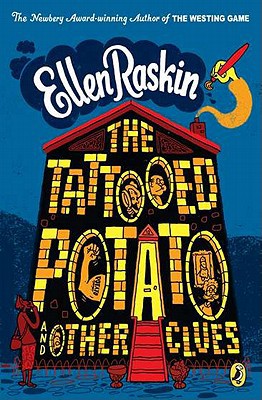 With the advent of social networking, I think publishers now have the best opportunity they’ve ever had to get the word out to target audiences eager for these reissues. These days, it’s possible to alert (for free, no less!) not only the “gatekeepers”—booksellers, librarians, and teachers—who remember and love those books, but diehard fans of the author whose Goodreads and LibraryThing shelves include those books and who spend time in chat groups devoted to those authors. Simple Google searches can lead publicists to fan groups. Publishers can create Facebook pages for the authors and their reprinted works, send tweets (that can be retweeted) to “big mouths” in the children’s literature field, and set up blog tours (perhaps not for the authors, who may be long gone from this world, but for their characters). All of these (and a skajillion things those clever, creative publicists can cook up) might help rescued treasures books reach a broad new audience.
With the advent of social networking, I think publishers now have the best opportunity they’ve ever had to get the word out to target audiences eager for these reissues. These days, it’s possible to alert (for free, no less!) not only the “gatekeepers”—booksellers, librarians, and teachers—who remember and love those books, but diehard fans of the author whose Goodreads and LibraryThing shelves include those books and who spend time in chat groups devoted to those authors. Simple Google searches can lead publicists to fan groups. Publishers can create Facebook pages for the authors and their reprinted works, send tweets (that can be retweeted) to “big mouths” in the children’s literature field, and set up blog tours (perhaps not for the authors, who may be long gone from this world, but for their characters). All of these (and a skajillion things those clever, creative publicists can cook up) might help rescued treasures books reach a broad new audience.
Generalities aside, I am overjoyed to see Ellen Raskin’s books back in print from Dutton! And with fantastic covers that do justice to the spirit and liveliness of Raskin’s writing. She was one of my childhood literary heroes—quirky, funny, totally original. There was simply no one like Raskin; her books were as distinctive and  recognizably hers (and yet different from one another) as those by today’s Daniel Pinkwater and Jack Gantos. All of them were filled with puzzles and wordplay, mysteries and slapstick, unforgettable characters and huge generosity of heart and scope. And Raskin was quite an artist; I recently discovered that she illustrated one of my favorite editions of A Child’s Christmas in Wales by Dylan Thomas (from New Directions, and still in print).
recognizably hers (and yet different from one another) as those by today’s Daniel Pinkwater and Jack Gantos. All of them were filled with puzzles and wordplay, mysteries and slapstick, unforgettable characters and huge generosity of heart and scope. And Raskin was quite an artist; I recently discovered that she illustrated one of my favorite editions of A Child’s Christmas in Wales by Dylan Thomas (from New Directions, and still in print).
‘Most everyone knows Raskin’s Newbery Award-winning The Westing Game, which I believe has never gone out of print, but her other novels have been unavailable almost as long as I’ve had the bookstore, or perhaps longer. (It’s hard to keep track of books going in and out of print, I confess.) Now a whole new generation of kids (and adults) can discover the rest of Raskin’s delightful, fun, smart mysteries: The Mysterious Disappearance of Leon (I Mean Noel), The Tattooed Potato and Other Clues, and the Newbery Honor book, Figgs & Phantoms. Dutton is also very smartly bringing out simultaneous hardcover and paperback editions of these titles, which came out in January. Ingram’s iPage lists A Murder for Macaroni and Cheese as releasing in May. Wahoo!
Is anyone else as excited as I am about Ellen Raskin back in print?
Cute Kid Stories
Josie Leavitt - February 23, 2011
The past three days I’ve been treated to the cutest kids and since their stories are still making me laugh, I thought I’d share.
The first kid was an exuberant, extremely fast-talking three-year-old named Gussie. She has a thick head of brown hair that was forever falling in her eyes that she brushed away with a fast flick of the back of her right hand whenever she was making a point,which she did a lot.
Her main conversation was talking about her cat, Flower. This cat apparently is a superhero. “Flower eats the monsters under the bed. She eats them all up. We call her Bouquet now, ‘cuz she got fat on the monsters.” I cannot make this stuff up. I tried not to laugh, but she was so earnest that I had to tousle her hair and chuckle. I find myself just walking around saying “Flower got fat, and we call her Bouquet now.” What a lovely family.
We’re hosting a Fairy Party in March and have had a signboard up by the front door announcing this. Sunday I was working alone and I heard the thunder of kids’ feet careening around the corner. I practically heard the screech of their sneakers as they shouted,”A FAIRY TEA PARTY!!! We love fairies!” Then two sisters came in and went right to me at the counter. “What can you tell us about the party? Can we dress up? We have fairy costumes.” I told them, yes, of course they could dress up. “Will you be dressing up?” I’m not really a fairy dress-up sort of person, but I do actually have a pair of wings.
Then they looked for fairy books, and they knew right where to go, and added almost haughtily, “We buy all our fairy books here.” I love it when kids take ownership of the store. They found things faster than I could and helped reorganize the section, so that every fairy was with her right group sport fairies apparently cannot be intermingled with pet fairies.
The last little kid was Norah, and she was shy at first. She opened up when I asked her where she lived as I knew she was visiting Vermont. She was quiet and I said, “Are you from New York City?” (as every customer I had yesterday was). She said, “Yes, I live in New York City.” Her parents looked at her and said, “Sweetie, where do we live?” The little one said New York one more time. Her mother finally said, “Norah, we live in Montreal.” Norah got an impish look on her face and said, “That’s right! We live in Montreal, not New York City.” And then she burst out laughing.
These are the days when I just love my job.
Shelftalker Review: ‘Blink & Caution’ by Tim Wynne-Jones
Elizabeth Bluemle - February 22, 2011
 I’ve known Tim Wynne-Jones’s books since I was a wee bookseller back in the mid-90s, when Some of the Kinder Planets wagged its happy, generous tail at customers from the middle-grade section and The Maestro tickled the ivories over in YA. (Fun facts: in addition to picture books and novels for children, Wynne-Jones has also written a children’s musical, an opera libretto, songs for Fraggle Rock, and several novels for adults.)
I’ve known Tim Wynne-Jones’s books since I was a wee bookseller back in the mid-90s, when Some of the Kinder Planets wagged its happy, generous tail at customers from the middle-grade section and The Maestro tickled the ivories over in YA. (Fun facts: in addition to picture books and novels for children, Wynne-Jones has also written a children’s musical, an opera libretto, songs for Fraggle Rock, and several novels for adults.)
I’ve known Tim Wynne-Jones the teacher since the early ‘aughts, when our paths crossed at Vermont College and his gleeful cackle seasoned lectures and readings on campus.
In writing workshops, he could take what seemed like an unworkable manuscript and find the true seed of possibility in it (and, more helpfully, a workable structure and arc) when the rest of us were at a total loss for helpful critique. He’d hone in on exactly the false note in a story, the soft rotten patch that smelled sweet on the outside but ruined the fruit. He had an unerring instinct for baloney, would simply write a big “NO!” next to a sneaked-in darling on your page. His own imagination was always on the boil, bubbling over and spilling into side corridors and weird corners.
This is beginning to sound like a eulogy; apologies. Tim Wynne-Jones is very much alive, and still teaching at Vermont College. Here’s the thing I’m trying to say: the guy might be a bit of a genius. He’s a flawed human like the rest of us, but the portion of his brain that accounts for creativity and writing acumen is perhaps larger by a factor of two or three, like the Grinch’s heart after the Whos sing fahoodoray on Christmas morning. Or perhaps his brain is simply more complicated; see Rube Goldberg contraption below.
What prompted this post is my recent read of Tim’s new book, Blink & Caution. I loved it; it’s certainly one of his best novels yet, if not THE best—which is saying something. The man has penned a slew of excellent books.
Blink is a kid with an eye tic, a hungry street kid prone to panic who sneaks into a hotel hallway early one morning, scavenging for room-service leftovers. Instead, he witnesses a very strange encounter between a couple of thugs and a well-known businessman, and stumbles across a couple of objects that lead him deep into the heart of a dangerous scenario. Meanwhile, a teenage girl who’s had a string of bad luck and made a bunch of bad choices finds herself at odds with (and on the run from) her drug-dealing boyfriend. The story alternates between Blink and Caution’s points of view. Although the two teens don’t know each other, you can guess from the title that Blink and Caution’s paths eventually cross, and that this marks a turning point for both kids.
What really struck me about this novel was how fresh the voices are, and how skillful the crafting. Although there is something contrivedly cute about the matched nicknames, they fit the characters, who otherwise have so much real, complicated, raw, funny, awful, hopeful, lovable struggle about them that they overcome the contrivance. You can’t help opening your heart and welcoming them in. Wynne-Jones also addresses some pretty tough subjects—such as Caution’s vulnerable sexual relationship with the bad boyfriend, and Blink’s life on the street—with refreshing directness and a lack of coyness, sentimentality, or moralizing. He presents his characters as they are, not as they should be, and that makes them all the more touching.
The alternating viewpoints also come with two flavors of well-wrought writing flair: a successfully carried-off second-person present tense for Blink, and a limited-third present tense for Caution, with a little omniscient third in there for good measure. Not too shabby.
There’s a little cinematic plot-futzing, and some extra suspension of disbelief required for the crime denouement, but I didn’t care. I loved the book. And I won’t be surprised when the movie rights are sold.
Anyone have comments to add? Please don’t tell Tim W-J about this review. Writers should never know they may be geniuses. It messes with the process, or so I’m told.
The Fun of Working from Home
Josie Leavitt - February 18, 2011
I have a twisted sense of humor, I’ll be the first to admit that. Yesterday I worked from home. Mostly I worked on my home, but I did do some store things. I can remotely log into my store computer from anywhere. This is a lovely feature that allows me flexibility, while also enabling me to work pretty much 24 hours a day.
Sometimes when I log on from home I like to mess with the staffers at the store. I log into the computer on my desk in the office, so no one can see what I’m doing, and I don’t do it often enough for them to automatically think it’s me. So I take advantage of this periodically. Today after I got all the info I needed to pay sales tax, I took a look at sales and then decided it was time to have some fun. I need to explain that when we take a special order a receipt gets printed by the register, even if that special order is generated from my couch.
When I create special orders for my staff to see, I make up books, too. So, coming up with titles is half the fun. Today’s book, special ordered for me, under my name, was entitled: Any Messages? For Bosses Too Lazy to Call. I even went so far as to create a whole new book record for the above title, so it would appear as a real book in our computer system. I laughed as I sent the order through and then I quickly logged off so they wouldn’t see me if they checked the back computer. I know it’s silly, but these little things make me happy.
Sadly, this time staffers missed the joke. They did not call me, because they actually busy, you know, selling books. But they did put the book on order for me.
A Versatile Staff
Josie Leavitt - February 17, 2011
Every year during the slow months of January and February I crunch numbers about our bestselling books for the previous year. I was surprised to see that adult paperback fiction was right up there with Mockingjay and When You Reach Me. I was very curious about this, so I delved deeper.
A good small to mid-sized general bookstore, with a great children’s department, requires a staff that can jump in and be able to converse knowledgeably about every section of the store. And that is clearly reflected in the books that did well during the year. Yes, some of the paperbacks were bestsellers, but others were the direct result of my dedicated staff handselling books they love. Who would expect to see Modoc  or The Thirteenth Tale to be among the top sellers for the year?
or The Thirteenth Tale to be among the top sellers for the year?
Our store does not have specialists. We do not have section managers. We all wear the same hat of bookseller. We are trained to help any customer who walks in the door. Since our move from Charlotte four years ago, we expanded our staff and doubled the size of the adult department. This year was the first year that adult book sales eclipsed the kids’ department in money earned. The staff here has to be able to switch gears quickly from helping a parent find the perfect book for their five-year-old to picking just the right book for the next book group.
Passion is what sells books. One staffer read and adored Kristin Kimball’s The 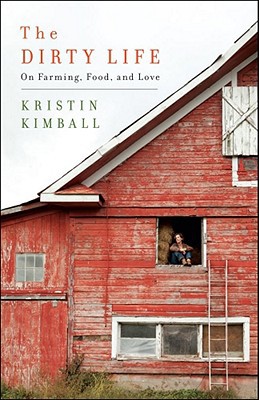 Dirty Life. That passion translated to more than 100 copies of what could have been a small hardcover selling in the store last year. The beauty of one staffer’s passion is you can say, “Darrilyn just loved this.” And that vote of confidence from someone else on staff is often enough for customers to feel good about buying a particular book.
Dirty Life. That passion translated to more than 100 copies of what could have been a small hardcover selling in the store last year. The beauty of one staffer’s passion is you can say, “Darrilyn just loved this.” And that vote of confidence from someone else on staff is often enough for customers to feel good about buying a particular book.
It’s interesting to me that some folks won’t buy a hardcover kids’ book, but they’ll buy an adult paperback that costs the same. While money is a huge factor in any purchase, so is the bookseller saying the book is good. We often have customers who won’t buy a bestseller unless someone on staff has read and liked it. While this is a lovely vote of confidence, it requires all staffers to be up on their reading.
One way we showcase the versatility of the staff is by our shelf talkers and our staff picks. Each staffer has her (we only have women working here at the moment) shelf on the staff picks case and there are shelf talkers scattered throughout the store. Each shelf talker is a representation of that person’s handselling. There’s nothing like seeing a customer read a shelf talker and then buy the book.
A versatile staff can make your year by selling outside the box. And this year really proved that to me. I’m thinking that on Friday I’ll buy everyone lunch.
The Power of the Listserv
Josie Leavitt - February 16, 2011
Yesterday, as I was checking my email I was struck again by the rapid response of the New England Bookselling Children’s Advisory Council listserv. Here’s the timeline:
At 3:oo a member asked a question about trying to find a particular title.
At 3:11 a member responded with the title.
At 3:17 the above member sent a link to the newspaper article the questioner had wondered about.
At 3:18 another member responded to the query, via her iphone, with the title.
At 3:33 a third member responded with the title, its subtitle, and its ISBN.
In all there were five people who responded in less than an hour to the original question. This kind of response allowed the questioner to satisfy her customer, order the book and ultimately make a sale. Without the listserv the sale might have been lost. What this tells me is this is a very active list and we all seem to be online all the time.
This listserv is a wonderful product of the New England Independent Booksellers Association, and NECBA is a part of that. I must say the list helps keeps everyone up to date on issues, concerns, and is a great way to share good news. The ABC listserv is also a highly helpful list and we all use it to help find titles and talk to booksellers outside our region.
Booksellers often feel like they toil in isolation, but with a listserv we remain connected and that is a benefit to us and our customers.
I Am an Indie and Happy About It
Josie Leavitt - February 14, 2011
I’m trying something new. I’m going to be happy about the plight of the indie bookstore. I realize I’ve just contradicted myself by saying happy and plight in the same sentence. That sums things up, but I’m done complaining.
Are indies facing a huge battle? Totally. Is there anything we can do to compete with the Amazons of the world who deeply discount, don’t pay sales tax and do everything they can to drive us out of business? I’m not sure. But a good indie is getting to be a rare thing, and this needs to be celebrated.
No, I cannot sell a bestseller for 46% off its cover price. What I can do is help you when none of the bestsellers look appealing. Are you looking for something totally different, but don’t know what that is? Then an indie is the place for you to be. We know our stock, we’ve read most of it and we all have amazing memories which allow us to get you the right book almost every time.
Does your child need help finding a chapter book that not only looks appealing , but that he will devour? Well, come on down, I can do that, and so can anyone on my staff. All we do is share our love of books with anyone who walks in the door, and that is a powerful thing that needs to be heralded from rooftops.
We are not Amazon and we don’t want to be. We don’t want to be a chain store. We want to the store to be a place you come in when you’re sad and need to smell the books to feel better or get a hug from someone who is sad that you’re having a terrible day. We want to be the store you can call at closing and we’ll leave a book you need for a present on the doorknob for you to pick up after work.We want to be the store you can spend hours in amiably chatting about books, life or your pets. We are the place that thinks of you and your reading habits when we place frontlist orders. We are the store that does everything we can to make sure you have a good experience every time you shop.
We are entrenched in our communities. We pay sales and property taxes that fund the schools, the roads, and the Little League field and we’re happy to do it. We bring authors to the schools and host wonderful, free events for the whole community. We need you as much you need us. It’s just sometimes we need to remind you.
Nowhere To Go But Up
Josie Leavitt - February 11, 2011
I’m cataloging my Thursday. I walk in, late, not having had breakfast (note to self: never do that again) and barely make it to my office, right behind the register, before my beleaguered staffer says,”Jos, when you have a minute.” We’ve worked together long enough that I knew something was up. I patted my hot egg sandwich goodbye and went on the floor.
A customer was trying to return two books without a receipt. I looked up each title to see if they had been purchased the week prior for her daughter’s birthday. They had not. So, now I’m just being nice by even considering the return, but it sure wasn’t seen that way.
Next, I check my inventory levels for each book, thinking if they were low, I could just accept the return. I had just received five of one of the books and one of them I was out of. I explained that I could only take one of the books back. The customer said, “But you can sell it.” I tried to explain that with the return I was essentially giving her $10 on the off chance that I could sell what would be my sixth copy of that title, and that’s just not going happen right now.
The tension was slowly escalating as the customer kept questioning me about why I wouldn’t take the book back. It was all I could do to not shout: THE BOOKS WEREN’T PURCHASED HERE. Inside I kept thinking, why am I even having this conversation, again and again? And why am I trying to find a compromise with this customer who clearly thinks I’m trying to cheat her. Finally the point got through and JP, my stalwart staffer, rang up her returns plus several other items.
Well, the customer didn’t believe her total when we said it was $37. She got mad all over again. I went through it item by item with her looking at the screen. She still didn’t believe it. Poor JP resorted to using a calculator to show her how it all came to $37. I couldn’t help but add, “You know, the computer’s pretty good at math.”
JP and I had a good laugh about this and we both thought the day had nowhere to go but up. Well, not so much. Later I was speaking to a local school librarian, who was in the middle of a Scholastic book fair, about a possible author event when I asked if we could talk about the possibility of our store doing a book fair for the school. I was met with a clipped, “Absolutely not. The last book fair you did we lost $700, because we had to pay for missing books.” Wow. Was expecting to hear that, especially since the book fair in question was 12 years ago, and we split the cost of the missing books, so everyone lost money on that one. And it doesn’t change the fact that $700 worth of books went missing.
Needless to say that kind of attitude does not endear itself to me, or the authors I have access to. We live in a small world and common courtesy goes a long way. Clearly, I’m still fuming, but I’m still laughing at the absurdity of the day. Here’s hoping Friday brings genuine laughs.


